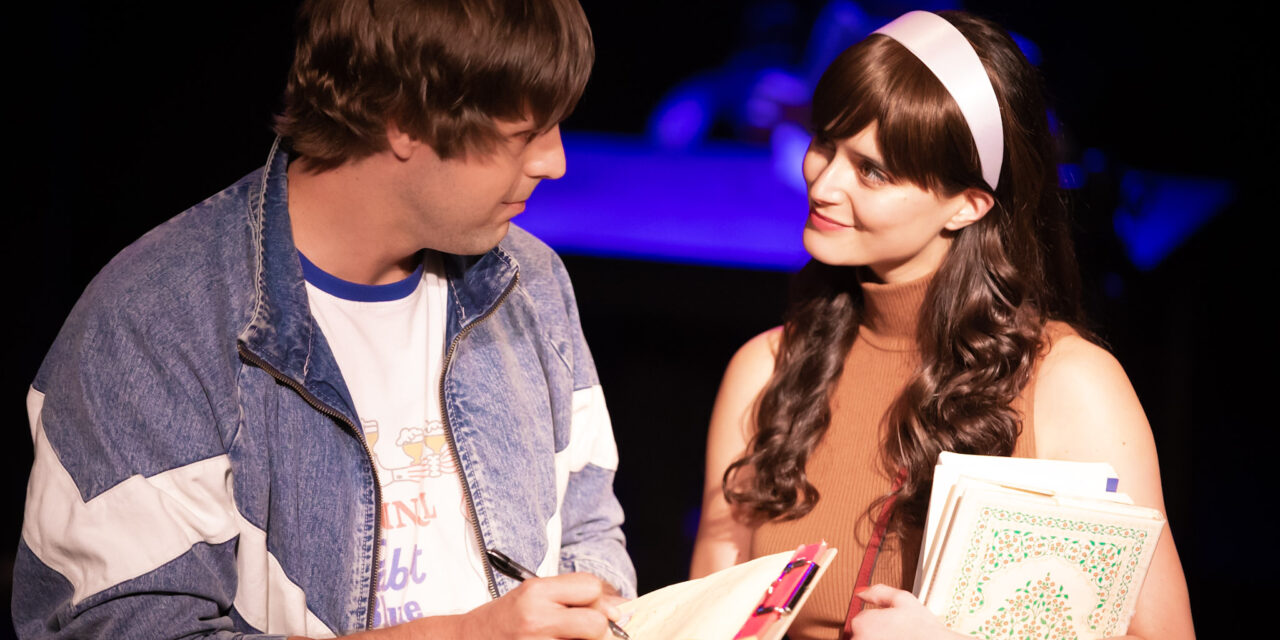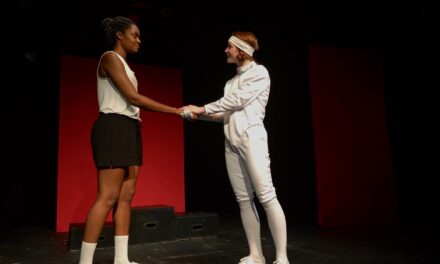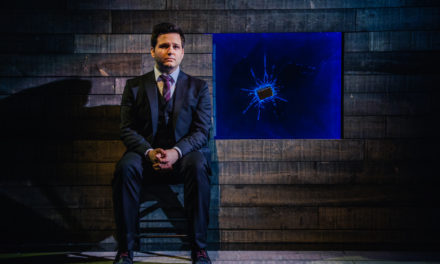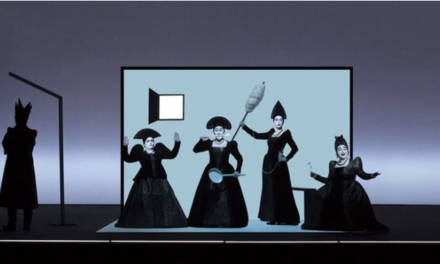In the pantheon of polarizing political figures, one might be hard-pressed to find one quite like Lee Atwater, and playwright Lucy Gillespie delivers a fascinating exploration of the man and his policies in Son of a Bitch at Hollywood Fringe Festival. Director Billy Ray Brewton keeps a cast of six talented actors moving at a furious pace yet the production never lets the audience get lost in the political weeds. Before the lights even come up on Ben Hethcoat, his portrayal of Atwater charges the air in the room with a source of relentless energy that is matched by his rapid-fire pattern of speech. People praise Sorkin for this style but more often than not, it is easy to disconnect from the characters in his work as they use their language and pace as a barrier to access. Here we have a much stronger example of what really goes back to Howard Hawkes’ comedies from the 1940s. The patterns of speech come out of the character, not merely out of a style enforced from the outside.
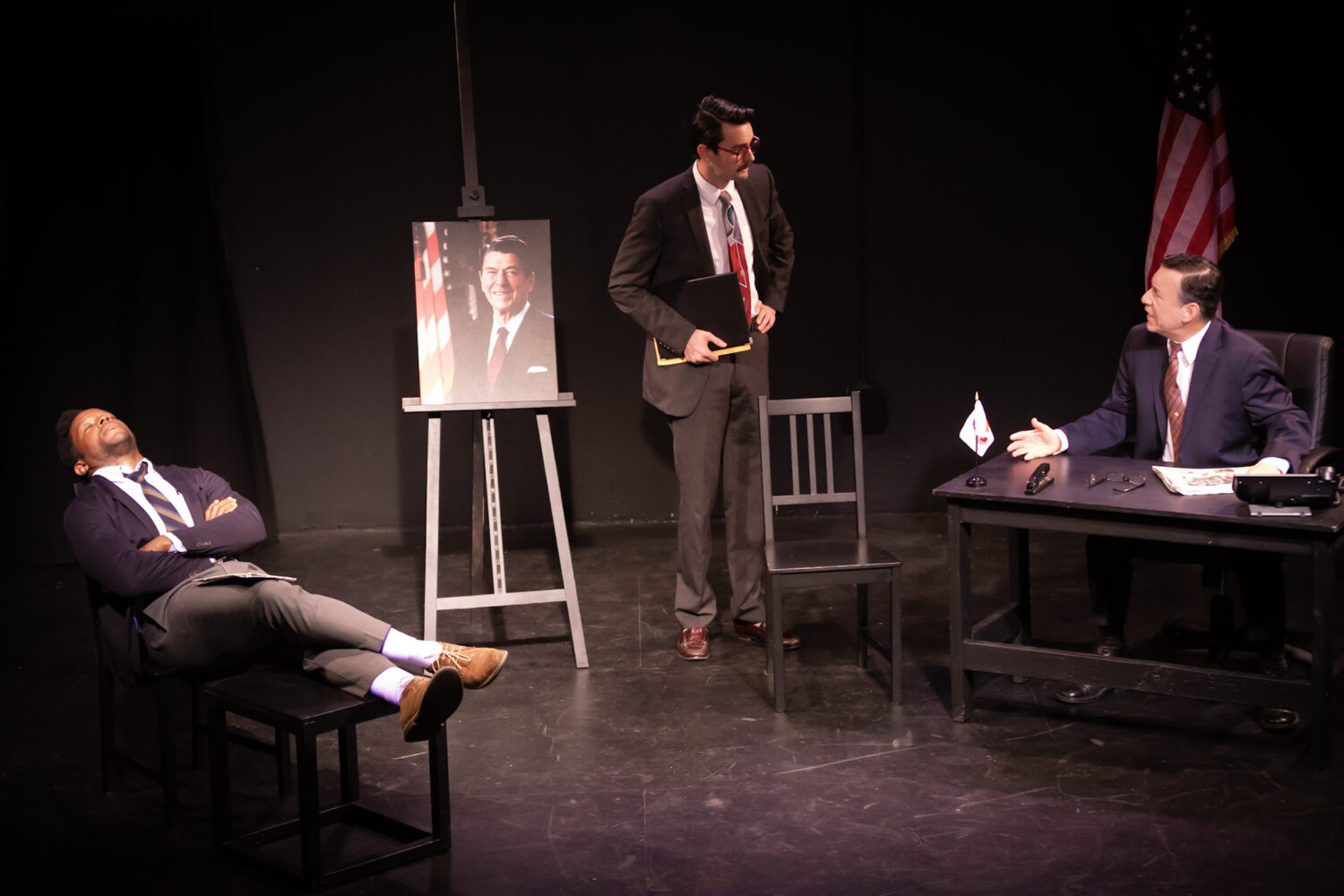
L to R: Luke Forbes (George W. Bush), David McElwee (Jim) and Dennis Gersten (George H.W. Bush) in Son of a Bitch. Photo by Matt Kamimura.
We meet Lee as a college student canvassing for the Newberry College Republicans where he tries to enlist Cass, played by Chloe Dworkin. She gives him a false name and challenges him to explain the ‘dot stickers’ – colored dots the men in his organization put next to girls names to indicate how pretty they are – but as they talk he wins her over and she signs up to volunteer. Cut to the White House in 1986 where George H. W. Bush (Dennis Gersten) meets with his top aide Jim Nollevit (David McElwee) to discuss his standing with the American people and his potential to win the presidency. His son George W. Bush (Luke Forbes) can barely sit up straight in his chair, he’s so bored (or possibly mood-altered in some way, we might imagine) but he endures the meeting with a bland sense of calm until Jim gives Vice President Bush a memo from Lee Atwater, who George W. notes is friends with Paul Manafort and Roger Stone. He is not keen on bringing Atwater into his father’s administration, no matter what he accomplished for Reagan but his father doesn’t feel confident that George W. is ready to act as a media consultant so he agrees to meet with Lee.
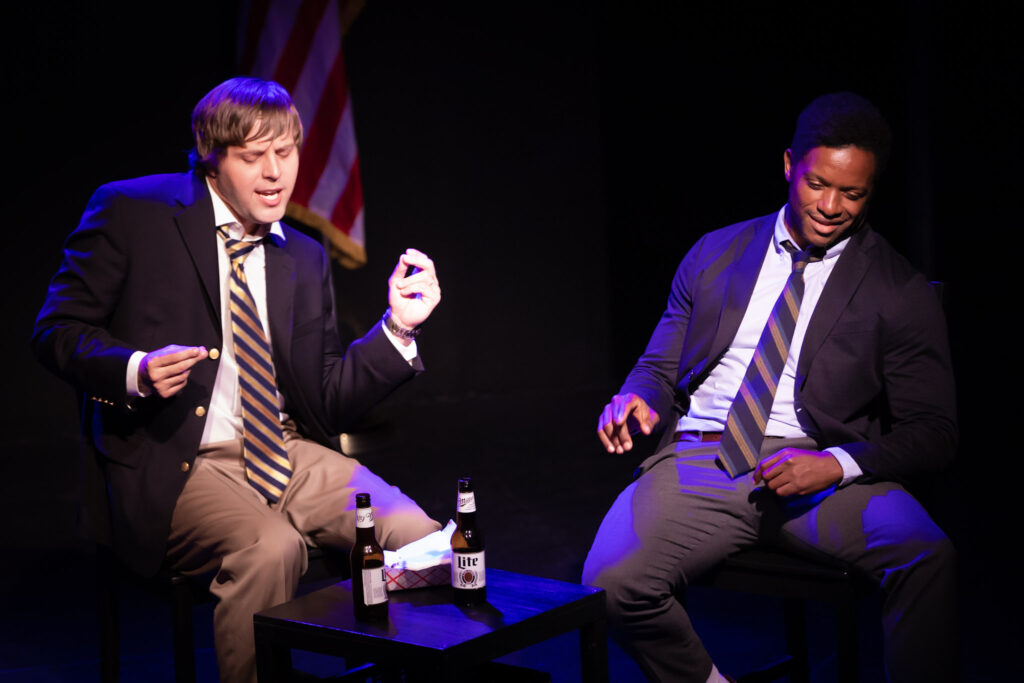
Ben Hethcoat and Luke Forbes in Son of a Bitch. Photo by Matt Kamimura.
The confidence and charm of the man are hard to deny when Lee attends the meeting and outright tells them that, “Y’all can’t afford to waste time on policy issues when the VP’s got 44% negative rating.” He is blunt and crass and perhaps the only person willing to stand in the VP’s office and tell him that “American doesn’t give a shit about issues. They want balls.” Lee gets the job, of course. His assistant Gladys (Corsica Wilson) keeps Lee on track as he reacts to the Dan Rather interview that the production projects onto the back wall but Lee fixates on one descriptive word for the experience that he repeats often afterward – ‘withering.’ As Lee’s power grows in the campaign, Jim becomes less and less enamored of his tactics as George W. turns into an acolyte, asking his father whether he wants to ‘play fair, or win?’. We watch Lee launch mudslinging campaigns and work to set up Gary Hart via a friend with a boat named ‘Monkey Business.’ George H. W. Bush confronts him for pissing in front of a reporter from the Washington Post but relents when Lee points out they are 12 points up over Dole.
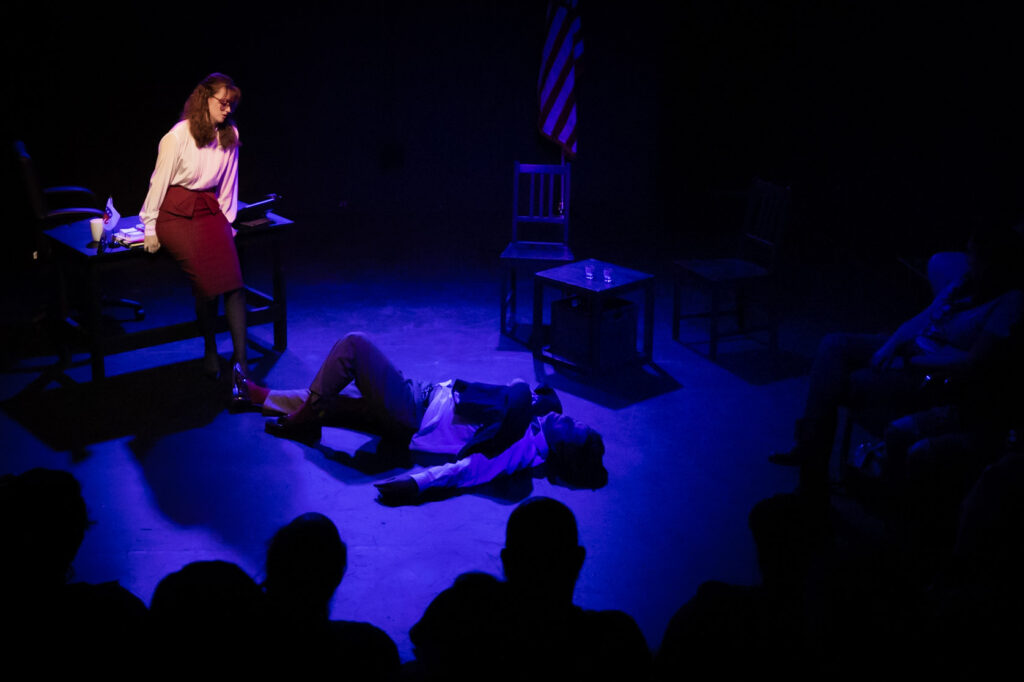
Corsica Wilson (Gladys) and Ben Hethcoat. Photo by Matt Kamimura.
Jim argues against using Lee’s Willie Horton, Dukakis attack ad but when Lee counters, it’s like watching a master class in a spin. George W. agrees with Jim and feels the ad is racist but when he fails to get Lee to admit it, it knocks his admiration of Lee down a few pegs. Lee meets up with Cass in a few scenes that illustrates one of what might have been many of his affairs but when he professes his love, she tells him he’s an embarrassment and has to fight him off in order to leave. Dukakis’ concession speech plays out via projection while Gladys is left to rally Lee out of a funk inspired by an apparent letter from Cass threatening to tell all. Her loyalty to her boss helps to humanize him, whether you want that to happen or not. She thinks he is a great man, and from a certain perspective, it is not hard to recognize why. At least in this play, Lee never let power cow him, he never hesitates to speak his mind and he never thinks twice about getting his hands very dirty.
Alongside Hethcoat’s mesmerizing and highly physical portrayal of Atwater, Gersten’s work as George H. W. succeeds in steering clear of mimicry yet manages to capture the essence of the man. McElwee’s Jim helps us as audience imagine a time when the political landscape didn’t quite look so much like a dumpster fire of tragic personalities. His stunned responses to what amount to Lee’s targeted shenanigans makes us imagine there was a time when there were lines political figures did not cross. In a brilliant act of nontraditional casting, Luke Forbes makes George W. feel more dimensional than anything ever has, save perhaps the former President’s reaction to Trump’s inauguration in 2016. He is a great partner and then partial foil to Hethcoat and he also thankfully steers clear of mimicry while doing it. Corsica Wilson and Chloe Dworkin have a similar look but each portrays strong women that brought out different things in Lee.
It feels like Lee Atwater’s world today – we’re just living in it. We don’t see Lee’s funeral (he died in 1991 at the age of 40 due to a brain tumor) but we watch George W. react to Bill Clinton’s win in a drunken, hurt rage that almost makes us feel sorry for the man. Jim arrives to tell George W. he wants him to be the next President and has drawn up a plan based on Lee’s work that he is certain will secure his win in eight years. Jim wants Gladys to help them – she knew Lee best – but she refuses to do it, even when she is offered a high-level staff position on the campaign. Jim doesn’t skip a beat when she leaves, diving right into his pitch to secure George W.’s candidacy, and though the play is a work of historical fiction it isn’t hard to imagine that this is exactly how it went down. There’s no sense that these men are doing anything they are doing for the country – they are doing this for themselves and, as Jim notes in the end, they are doing it, because they can.
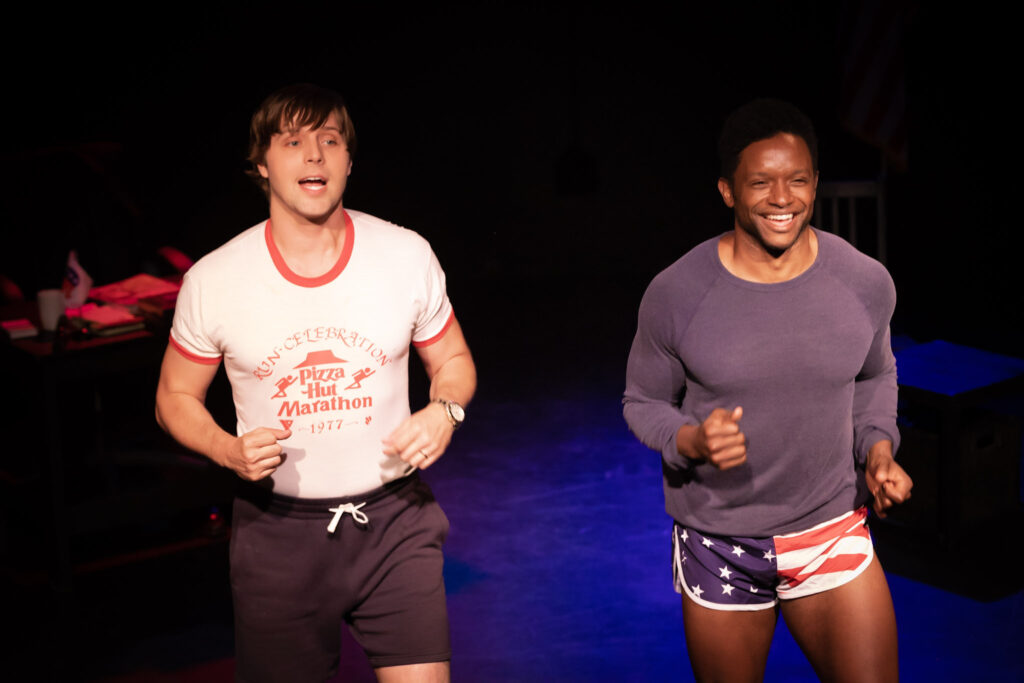
Ben Hethcoat and Luke Forbes. Photo by Matt Kamimura.
Produced by Lucy Gillespie, Billy Ray Brewton, and Ben Hethcoat. The Stage Manager is Rebecca Schoenberg.
This post was written by the author in their personal capacity.The opinions expressed in this article are the author’s own and do not reflect the view of The Theatre Times, their staff or collaborators.
This post was written by Christine Deitner.
The views expressed here belong to the author and do not necessarily reflect our views and opinions.

